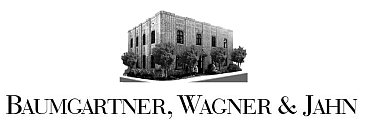Every accident does not result in a personal injury claim. To support a personal injury claim there must be a legal basis to hold some individual, company or agency responsible for the accident. This legal responsibility generally arises in one of three ways: negligence, intentional acts or strict liability.
Most personal injury claims are based on negligence. Negligence is the basis for auto accident claims, slip and fall claims, trip and fall claims, and most professional malpractice claims.
Definition of Negligence
Negligence is defined as the failure to exercise the care a reasonably careful person would exercise under the same or similar circumstances. Negligence can be broken down into two parts: duty and breach of duty. The general duty is to exercise reasonable care. Duties under specific circumstances may be defined by statute or court decisions.
Violation of a statute is evidence that a jury can consider in deciding whether someone was negligent. But with limited exceptions, violation of a statute is not conclusive evidence of negligence. The exceptions to this rule, where a person will be found negligent as a matter of law, are when a person violates a law relating to electrical fire safety, smoke alarms, sterilization of needles, or driving under the influence of alcohol or drugs.
Negligence in Auto Accident Cases
In auto accident case, the Rules of the Road set out duties owed by drivers in specific situations. In Washington, the Rules of the Road are set out in Chapter 46.61 of the Revised Code of Washington. Among other things, these Rules of the Road require drivers to:
- Obey the instructions of traffic control devices. RCW 46.61.050
- Not follow another vehicle more closely than is reasonable and prudent. RCW 46.61.145
- Yield to the vehicle on the right when arriving at an intersection at approximately the same time. RCW 46.61.180
- Yield to oncoming traffic when making a left turn. RCW 46.61.185
- Signal before turning, stopping or suddenly decreasing speed. RCW 46.61.305
- Drive at a reasonable speed given the conditions and, unless posted otherwise, no faster than 25 mph on city and town streets, 50 mph on county roads, and 60 mph on state highways.
Violation of any of these statutes is evidence a jury can consider in deciding whether a driver was negligent in connection with an auto accident.
Negligence in Slip/Trip and Fall Cases
Land possessors generally owe a duty to use reasonable care in connection with the maintenance of the property and their operations on it. The extent of this duty is set out in Washington court decisions and depends on the injured person’s status while on the property. That status may be either an invitee, licensee or trespasser.
A person has the status of invitee if invited onto the land in connection with the land possessor’s business dealings or where the land is open to the public. Persons going into a store or restaurant are business invitees. The land possessor owes a duty to invitees to maintain the premises in a reasonably safe condition, and must inspect for and warn of or correct hidden dangerous conditions on the land.
Licensees are persons who enter onto the property with the possessor’s express or implied permission, but the property is not open to the public and the person is not there in connection with the possessor’s business. Social guests at a private home are licensees. The land possessor has a general duty to warn of hidden dangers on the property which the possessor knows or should know about, but does not have a duty to inspect the property for hidden dangers.
Trespassers are persons who enter onto the property without the land possessor’s express or implied permission. A land possessor does not owe unexpected trespassers a duty of reasonable care and is generally not liable to them for negligence in connection with maintaining the property or operations on the property.
Negligence in Professional Malpractice Cases
Washington statutes define when health care providers are liable for negligence. A healthcare provider is under a duty to exercise the degree of care, skill and learning expected of a reasonably prudent health care provider, who is in the same profession or class, in the State of Washington, and is acting under similar circumstances. RCW 7.70.040. Expert testimony is generally required to establish what a reasonably prudent health care provider would have done under similar circumstances.
